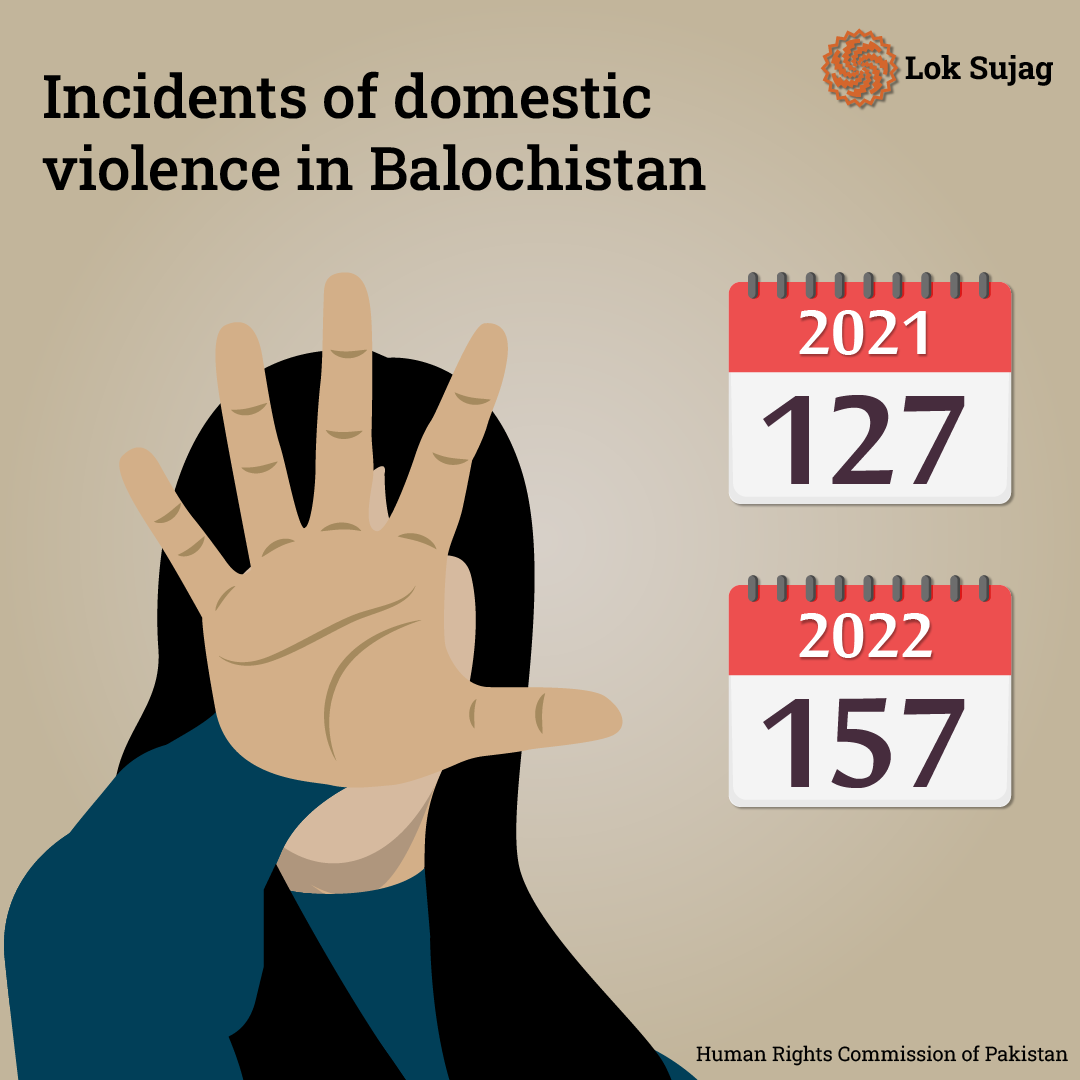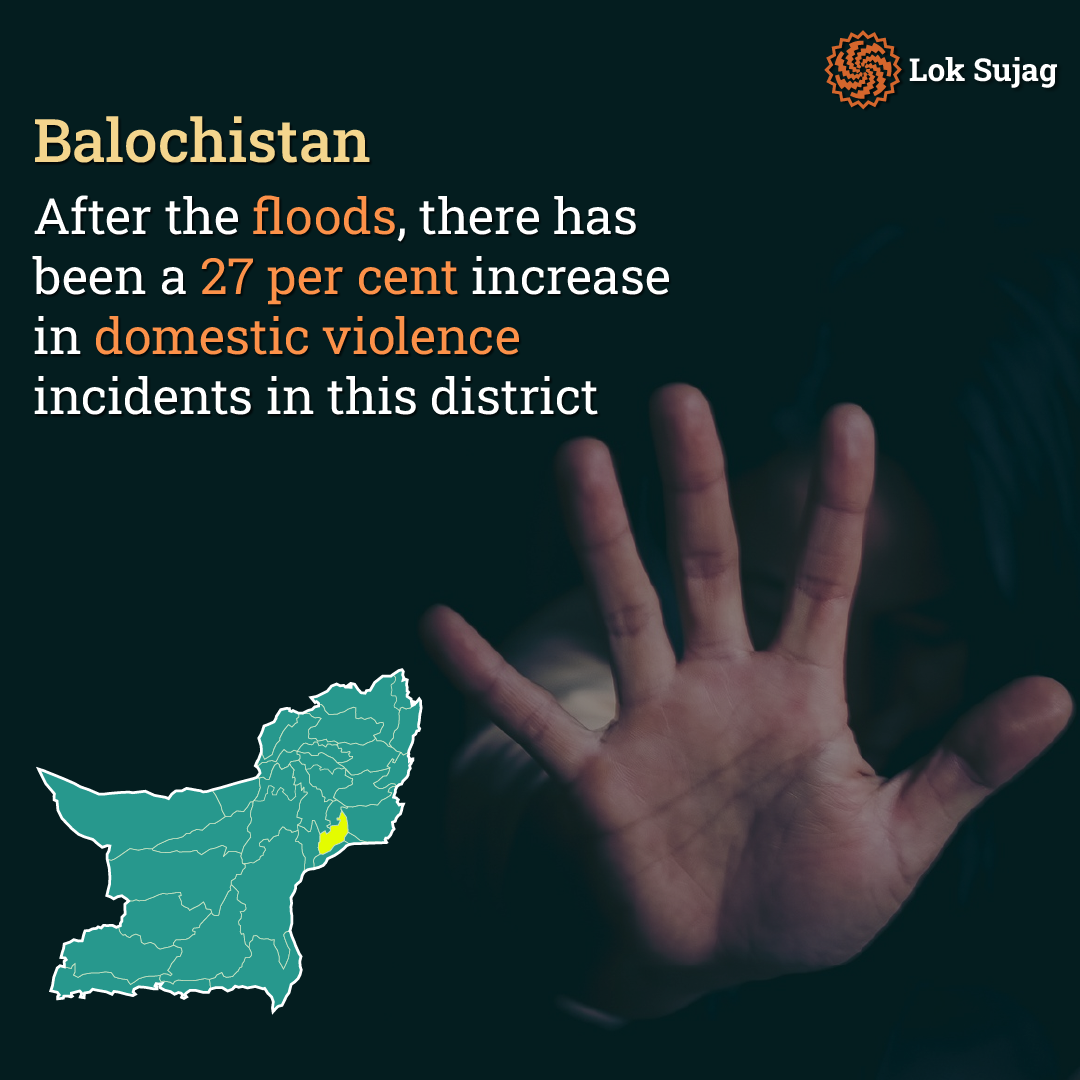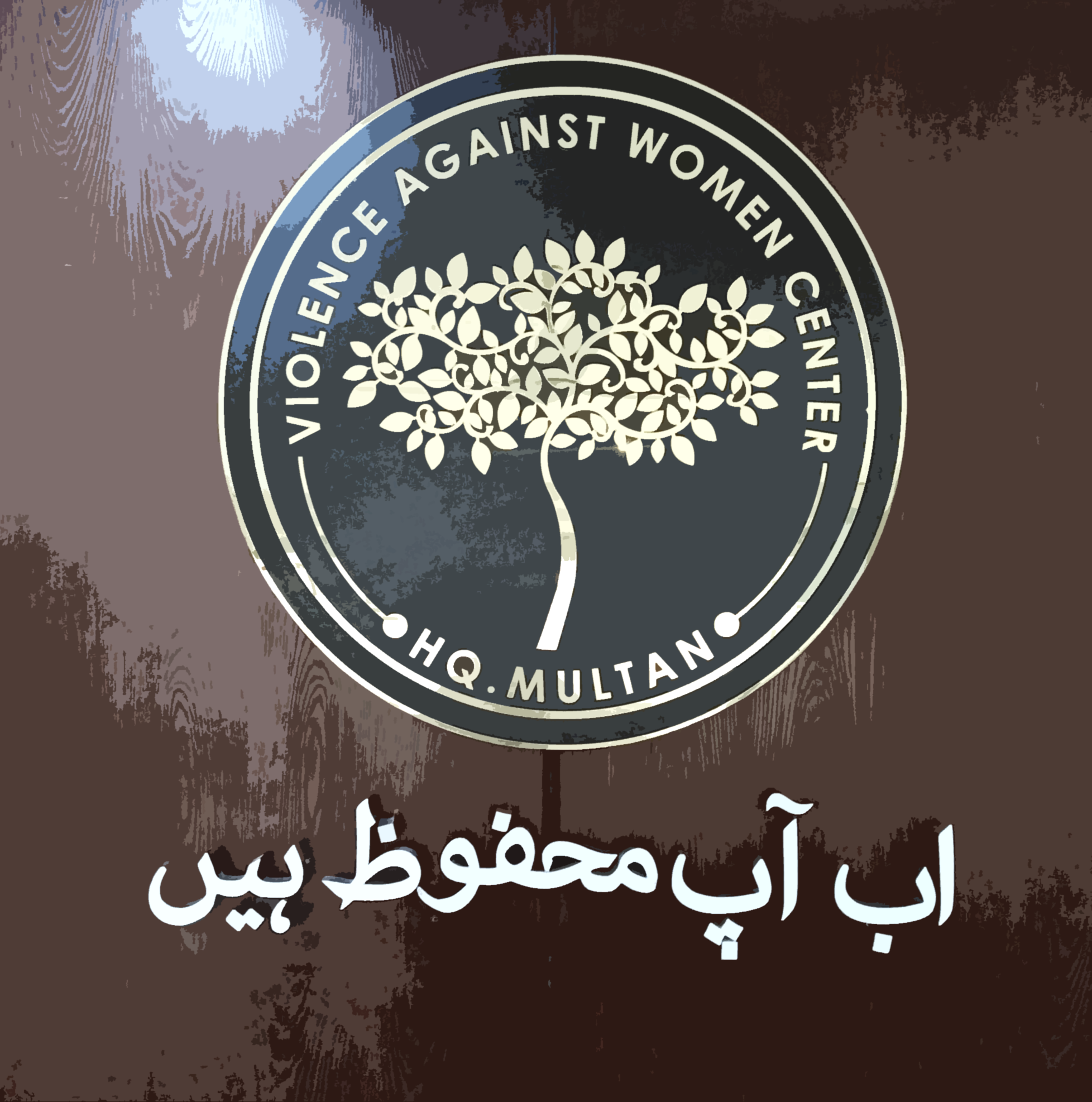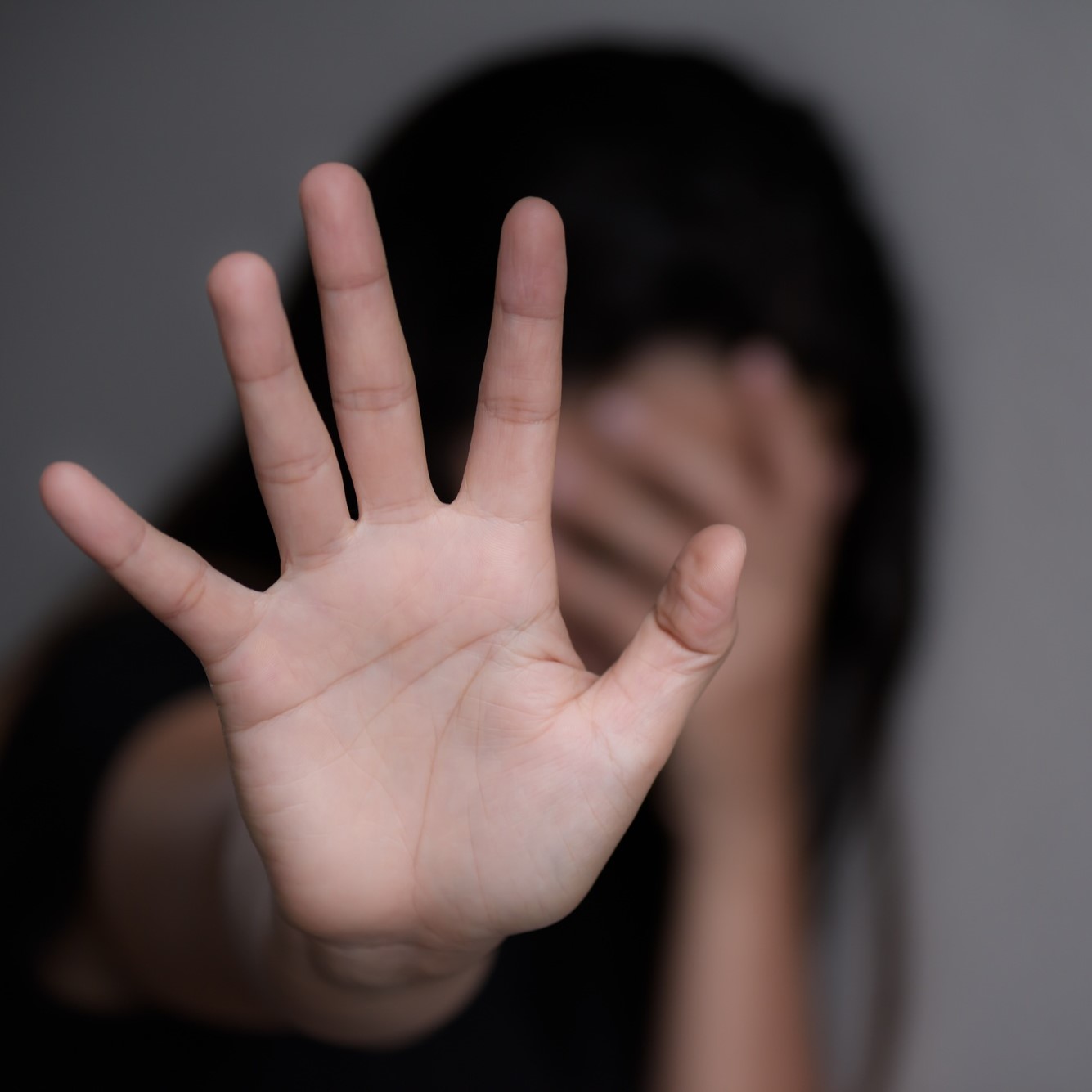In the Nasirabad district of Balochistan, the mother of three children, Khadija Bibi, sits in front of a relief organisation’s tent, making chapatis under the sun. She is thirty, but due to her many hardships, her face is pale and she appears much older than her actual age.
Last year, her house in the Goth Sultan Kot was washed away by floods. The disaster also ended her husband’s business. After becoming unemployed, her husband fell victim to mental pressure, often venting his frustration on her.
“If the kids insist on buying something, I am forced to ask my husband. In response, he starts quarrelling and resorting to physical violence, which has become routine. I can’t complain to anyone, or I’ll have to endure more violence.”
Imtiaz Manjho, the legal advisor of the NGO (non-governmental organisation) Sahar Organisation in Naseerabad, has been examining incidents of violence against women in the area for some time. He states there has been a 27 per cent increase in domestic violence incidents in this district after the floods.

During the past six months, 39 domestic violence cases were reported at local police stations and their organisation’s Gender Desk. Out of these, six cases were pursued legally, resulting in nine people being imprisoned or fined.
However, the parties settled outside of court in the rest of the incidents.
Mental health expert Behram Lohar, working in the Naseerabad division with the cooperation of the World Health Organisation (WHO), confirms the increase in domestic violence incidents after the floods. He says that financial distress is closely related to psychological issues. In the flood-affected areas, people witnessed the destruction of their homes, standing crops, and businesses, which had a negative impact on their mental well-being.
Behram explains that six districts of the Naseerabad division were severely affected by the floods, and incidents of domestic violence and honour killings have also increased in the region.

According to the Human Rights Commission, 157 cases of domestic violence were reported in Balochistan in June 2022, with 35 individuals being killed on the pretext of Karo Kari, half of whom were women, and 40 women becoming victims of sexual abuse.
Before this, in 2021, the number of reported cases of domestic violence was 127, with 30 women being victims of sexual violence.
To curb domestic violence in Balochistan, a law was enacted in 2021, proposing a minimum of six months imprisonment and a fine of up to one lac rupees for those committing this crime. However, Muhammad Zubair Makhdoom, the district coordinator of the NGO Shifa Foundation in Naseerabad, says that very few perpetrators receive punishment in such incidents.
Also Read

Victim of neglect: Multan's center for helping women in distress fails to achieve its objective
According to Zubair, most women do not report incidents of violence due to a lack of awareness and fear of family reputation. Some women fear that they might get killed if they file a case. The issue of domestic violence in the province is old and serious, but many such incidents are not recorded due to specific social norms.
Zubair acknowledges that domestic violence incidents have increased after the floods, and women and children are affected the most.
He says that people become desperate when homes are destroyed and there is no place to hide. In societies like Balochistan, where all the responsibilities lie on men, frustration, irritability, and quarrels will increase if they lose their jobs.
Published on 21 Jul 2023



















